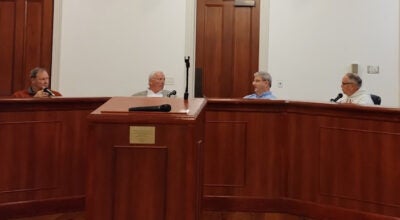Drug court receives $50,000 state grant
Published 8:19 pm Friday, March 6, 2009
A drug court for Marengo, Greene and Sumter counties in Alabama received a $50,000 grant this week from the Alabama Administrative Office of Courts.
“In a drug court process, it’s the individual, it’s the offender who pays his or her way through the process,” said Marty Ramsey of the Alabama Administrative Office of Courts. “When you get a person with a drug case that has a potential punishment of prison then the taxpayer pays for that.”
The program allows the participant to enter a guilty plea, then commit to more than a year of various steps meant to free the addict of his addiction and pay his debt to the court.
The 17th Judicial Court judge, Eddie Hardaway, may sanction the drug addict to a rehabilitation program, order him to pay fines and court costs, complete the GED process, perform community service, find employment, take drug screenings or other orders that are directed toward rehab.
“It’s tremendous,” said Ramsey. “It’s around $10,000 a year right now in Alabama to incarcerate someone in a drug court operation. It’s simply like comparing apples and oranges. The offenders stay at home and provide for families. They continue to promote families. They continue to work and pay taxes, and we don’t have to put them in the prison system.”
The program’s executive director, Joane Holloway said that even though the program only began last September in Marengo, Sumter and Greene counties, she can already see a difference in the lives of those who have chosen this path.
“We’re starting off very well,” Holloway said. “We work very closely with these offenders. I truly believe we’re doing what we set out to do. The participants see we care about them and they open up and work toward the healing process. I can’t tell you how many of them I’ve heard say nobody ever cared about them before.”
Currently in Alabama, 44 counties have drug courts, with 23 others planning to establish them. Court officials say the courts are growing in demand because only about 10 percent of the participants nationwide have become repeat offenders.
“What the judge can do is what the family, what the church and what the school cannot,” said Ramsey. “The judge has the authority to offer or take away an individual’s freedom, and that is a tremendous motivator.”
District attorney Greg Griggers said the program offers offenders a new beginning without the weight of a criminal record, but that is only if they complete every step and submit to after-care.
“Our biggest goal is to make these offenders drug-free,” Griggers said.
“The biggest challenge is staying financially afloat. We’re still working out some of the rough spots, but that’s part of anything new.”





